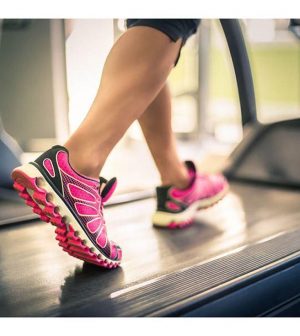- 10 Strategies to Overcome Insomnia
- Could Artificial Sweeteners Be Aging the Brain Faster?
- Techniques for Soothing Your Nervous System
- Does the Water in Your House Smell Funny? Here’s Why
- Can a Daily Dose of Apple Cider Vinegar Actually Aid Weight Loss?
- 6 Health Beverages That Can Actually Spike Your Blood Sugar
- Treatment Options for Social Anxiety Disorder
- Understanding the Connection Between Anxiety and Depression
- How Daily Prunes Can Influence Cholesterol and Inflammation
- When to Take B12 for Better Absorption and Energy
Exercise May Be a Buffer Against Pneumonia

Regular physical activity has all sorts of benefits, and now researchers say it may help ward off serious pneumonia.
Until now, it wasn’t clear how exercise affected the risk of pneumonia, an infection of the lung tissue usually caused by bacteria or viruses. To find out, researchers analyzed 10 studies that included a total of more than 1 million people.
The analysis showed that people who exercised regularly had a lower risk of developing pneumonia and pneumonia-related death than those who were the least active or sedentary. And you don’t have to be a triathlete to obtain benefits, the study authors noted.
“In this first-ever pooled analysis of all studies conducted on the topic, we found strong and convincing evidence of a relationship between regular exercise and reduction in a person’s risk of developing pneumonia, as well as death from the disease,” said study co-author Setor Kunutsor. He is a senior lecturer in evidence synthesis at Bristol University Medical School in the United Kingdom.
The study findings held even after the researchers accounted for factors that can affect pneumonia risk, including age, sex, weight, wealth, alcohol use, smoking and pre-existing health conditions.
The strength of the association between exercise and pneumonia risk did not vary by age or sex, according to the report, which was published online recently in the journal GeroScience.
“Though our study could not determine the amount and intensity of physical activity which is essential to prevent pneumonia, some of the results suggest that walking for 30 minutes once a week has a protective effect on death due to pneumonia,” Kunutsor said in a school news release.
“During the winter months and with COVID-19 still circulating, developing severe pneumonia from COVID-19 and other respiratory diseases is a common occurrence. Taking regular physical activity could reduce the risk of respiratory diseases, such as COVID-19, especially in at-risk groups like older adults and those with underlying health conditions,” he added.
However, the investigators pointed out that their study doesn’t prove a cause-and-effect relationship, and additional studies are needed.
Pneumonia is a leading cause of death among older people, the young, and people with pre-existing health conditions. In 2016, the disease was the fourth leading cause of death worldwide.
More information
For more on pneumonia, go to the American Lung Association.
SOURCE: University of Bristol, news release, Dec. 7, 2021
Source: HealthDay
Copyright © 2026 HealthDay. All rights reserved.










